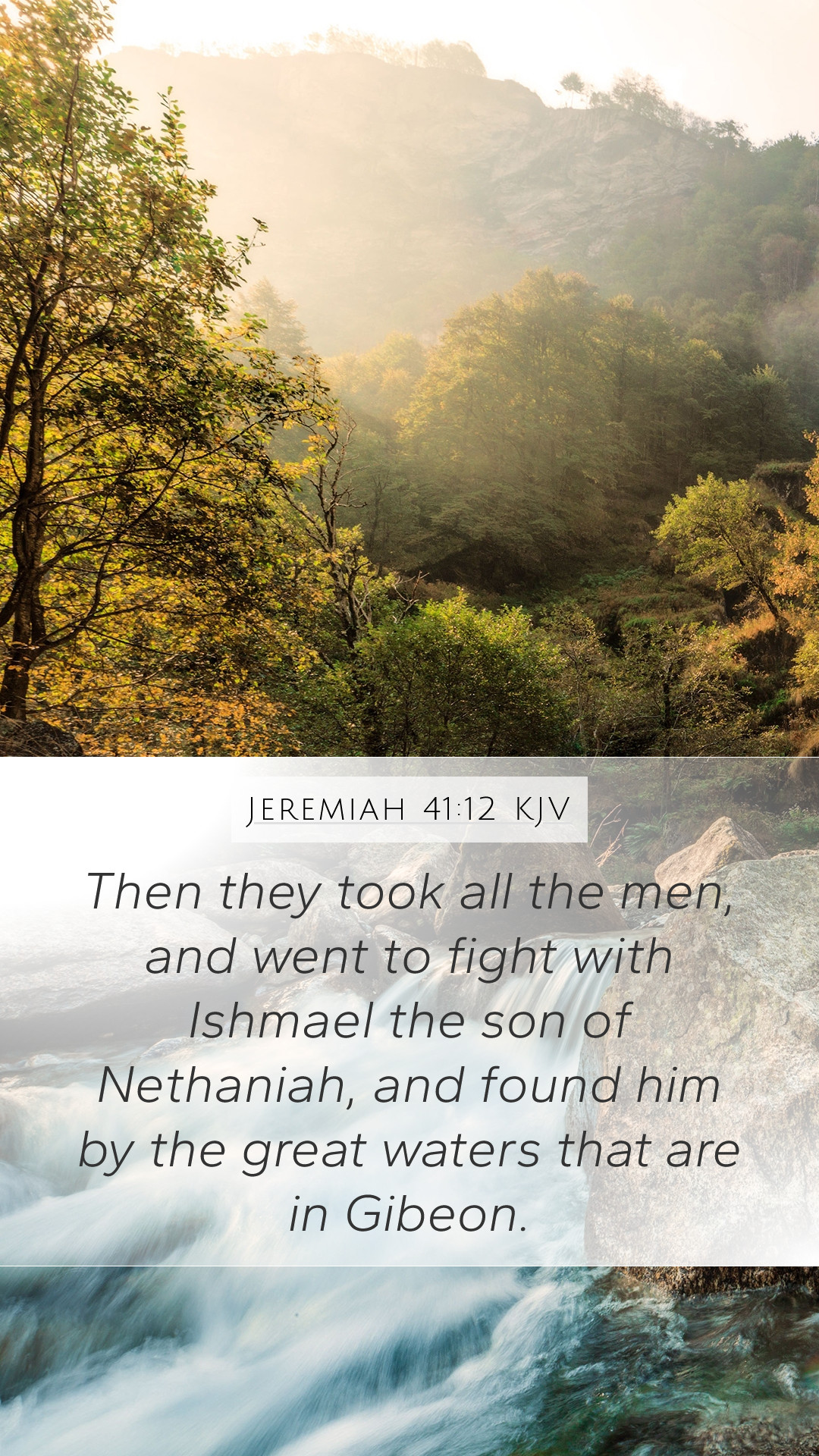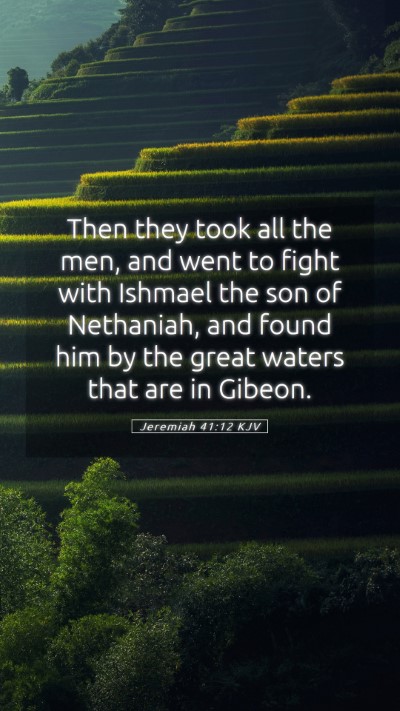Commentary on Jeremiah 41:12
Verse: “Then they took all the men, and went to fight against Ishmael the son of Nethaniah: and they found him by the great waters that are in Gibeon.” (Jeremiah 41:12, KJV)
Bible Verse Interpretations and Meanings
This verse presents a moment of conflict and determination among the remnants of the people of Judah who had returned after the Babylonian exile. The phrase "they took all the men" indicates a collective effort to confront a common enemy, reflecting the theme of unity against adversity.
Matthew Henry's Commentary
According to Matthew Henry, the surrounding events detail a time of turbulence for the Jews in Judah. Ishmael, a member of the royal family, represents treasonous conflict, having killed Gedaliah, the appointed governor. The action against Ishmael underscores a desperate need for leadership and purity of intention among the returning exiles. Henry emphasizes the gravity of their mission; they were not merely avenging a wrong, but attempting to preserve their nation amidst chaos.
Albert Barnes' Notes
In Barnes' interpretation, the men are depicted as emboldened and motivated by recent injustices. Their choice to pursue Ishmael is strategic; he had been destabilizing the fragile peace established in the region. The reference to "the great waters that are in Gibeon" also suggests a geographical significance, indicating the strategic importance of Gibeon in their pursuit, as it was a known landmark that may have signified refuge or significant battle.
Adam Clarke’s Commentary
Clarke's insights delve into the historical context of the events. He points to the importance of Gibeon as a site of historical battles and the famous alliance of the Gibeonites with Israel. The phrase "great waters" could symbolize both the literal water and the emotional depth of the conflict. Clarke further stresses the symbolic nature of this pursuit, as it illustrates the struggle against internal treachery during a tumultuous time of rebuilding and reestablishing community in Judah.
Understanding Scripture Through Context
The context surrounding Jeremiah 41:12 is essential for understanding its implications. This chapter occurs during a period of uncertainty and re-establishment for the Jewish people after their exile. Following the death of Gedaliah, a power vacuum emerges, leading to a struggle for control among various factions. The urgency to confront Ishmael reflects both a literal and metaphorical battle for integrity, leadership, and the continued survival of the community.
Application and Significance
This verse instructs contemporary readers on several points:
- Unity: Just as the men united against Ishmael, so too should individuals today seek communal strength in times of trouble.
- Leadership: The need for decisive leadership in turbulent times remains relevant, reflecting the necessity for integrity and resilience in authority figures.
- Conflict Resolution: Recognizing the importance of confronting internal threats within communities serves as a guide to modern conflicts, highlighting proactive engagement for peace.
Bible Cross References
- Jeremiah 40:6-8 - Provides context on the establishment of Gedaliah's governance.
- 2 Kings 25:25 - Discusses the continuation of conflict and leadership struggles post-exile.
- Ezekiel 33:6 - Emphasizes the responsibility of watchmen to confront danger for the sake of the community.
- Isaiah 41:10 - Affirms God's presence and support in times of fear and conflict.
- Proverbs 1:10-15 - Discusses the importance of resisting harmful alliances and influences.
Conclusion
In analyzing Jeremiah 41:12, insights from public domain commentaries illuminate the verse's multifaceted meanings. From issues of leadership, the necessity for unity, and the historical context of the exiled community, the verse echoes through time to remind us of the struggles inherent in safeguarding community and faith. Whether for personal reflection or group study, this commentary serves as a guide for deeper understanding of Scripture, encouraging reflection on the ongoing significance of these ancient texts in modern-day life.


